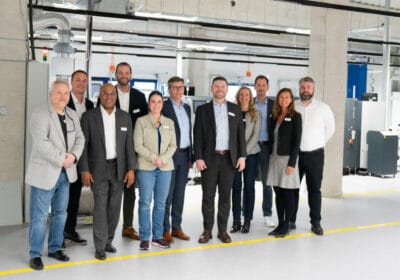Engineering Updates Tim Johnston meets Ann Watson to discuss the future of UK Engineering.
Q: Ann, Thank you firstly for your time. My first question is in regards to the very positive feedback we have had from UK Manufacturers for 2017. What are your thoughts on this year’s forecast and how can we ensure another strong year for UK Engineers?
A strong 2017 for UK engineering means protecting and enhancing our global reputation for quality and innovation above all else. With the new Industrial Strategy and technical education reforms putting advanced manufacturing, engineering and STEM at their heart, our sector has a great opportunity to play a pivotal role in the UK’s continuing prosperity. The UK’s top engineering firms are amongst the world’s best, and I’m confident that they start from a strong foundation as they enter 2017.
Q: March is going to be a very testing month for our industry. Post Brexit Britain will be a challenge for us all. How will we steer ourselves in the right direction and keep our position within the global Engineering industry?
The fall in the pound has led to a recent boom in UK advanced manufacturing exports, which is good news. However, although we’ve seen a short-term boost, we have a lot of work to do to safeguard the global standing of UK engineering in a post-Brexit world – remember, the UK hasn’t even begun to actually leave the EU yet. The top priority simply must be skills – if exports are to keep increasing the sector will need to grow its skills base, but there are continuing skills shortages across a number of occupations and a number of sub-sectors as it is. We need to sell the good news stories coming out of UK engineering and encourage as many new entrants to our sector’s workforce as we can.
Q: Semta cannot be thanked enough for their impact on bringing through young engineers. How do we get more young people involved in the Engineering sector ?
It’s actually quite simple, at least in theory – we need to tell more of them about the amazing career opportunities that are available in our sector. That means we need to strengthen careers advice in schools – so we eagerly await the government’s upcoming Careers Strategy. It also means we need to do better as a sector at selling ourselves, especially to underrepresented groups – our latest research report, Engineering Skills for the Future, examines in closer detail what all of us within engineering can do to encourage more girls to join us. And we need to be far better at communicating to young people exactly what engineering is, as the old stereotype of a man in greasy overalls working in a filthy workshop stubbornly remains. We need to show young people that modern engineering offers them the chance to be creative and inventive, and that a career in engineering can offer them the chance to shape the world around them – everything they touch has been engineered – their phones, their games consoles and their bikes – we need to get that message across.
Q: We’ve seen the great work the IAC have been doing and their work with Semta . Is there anything our readers could do to get involved and help with this programme?
The IAC has been doing a fantastic job as a strong and effective voice for engineering apprentices. The 2016 annual report has been quoted on the floor of the House of Commons, it’s been responded to by the Minister and the policy proposals contained within are influencing the ongoing debate as the government’s reforms take shape. I would encourage your readers to firstly read the 2016 report and champion it as widely as they can, as it packs a real punch and contains some very interesting – and in some cases concerning – research. Secondly, I would encourage readers to promote the 2017 IAC annual survey to their networks and to every apprentice they know, as the more responses it gets the stronger the 2017 report will be. It’s now open to apprentices from all sectors across the UK. And thirdly, I would ask readers to encourage the apprentices they know to consider getting involved with the IAC as members – again, apprentices from all sectors will be considered.







